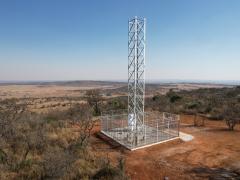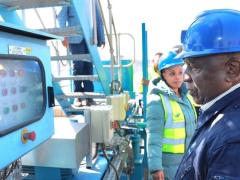By following dynamic data since 2016, a team of South African neuroscientists has analysed the changes in neurobehavior of high performing teams and individuals pre-pandemic, through the pandemic, and how it has stabilised as the world tries to move past the pandemic. The first ‘Dynamic Neurobehaviors in the Workplace Index’, based on a global sample of almost 15 000 business executives, has been launched.
The team at Neurozone® in Cape Town, led by neurologist Dr Etienne van der Walt, had shown that before the pandemic, humanity largely depended on a set of tools and neurobehaviours to maintain mental health and physical well-being. However, in response to the environmental changes catalysed by the pandemic, the predictors of resilience shifted in relation to how important they are for optimal resilience.
In 2019, data showed that the ten most essential neurobehaviors displayed in the workplace that leaders need to cultivate included optimism, reducing negative thoughts, meaning in work life, generic part thought technique and intermittent fasting. In March 2020, the picture started to change. By the end of 2021, the predictors of resilience stabilised, with the most important being exercise duration, exercise diversity, destructive habit avoidance, reducing negative thought patterns, mobility and movement.
The scientists revealed that ongoing lockdowns forced high performers to re-prioritise the rhythms of exercise and mobility while engaging in activities (such as optimism and humour that unlocked dopamine release in the brain) that boosted their high performance energy. Despite the difficult circumstances, they turned out to be the top predictors of resilience.
Van der Walt unpacks the insights: "The goalposts of our well-being shifted in the last 21 months. Many organisations are witnessing a post-Covid-19 mental health pandemic coming into play, in which chronic stress results in burnout. The resilience benchmark moves with what the planet's living things experience in their environment. Some of the things we rely on to keep us happy or healthy, or functioning optimally, are simply not as relevant. That fact would have been invisible without this data. It shows that we have to re-prioritise our neurobehaviors for the new environments we find ourselves in to achieve well-being."
"In addition, it's perhaps most important to clarify this: Resilience is not grit or tenacity. Resilience refers to how effectively and quickly your brain-body system can counter or balance external environmental changes based on past experiences and then return to this baseline; your baseline relaxed physiological state, your state of calm. By doing so, you learn from the experience and grow in capacity to overcome future challenges. This learning is what underpins evolution and adaptiveness. If you cannot move back to the state of calm effectively and quickly, you go into chronic stress and become ill. By contrast, when you're at your baseline relaxed physiological state, your brain, which affects emotion, behaviour and learning, functions at its optimum, where teams and organisations perform at their best. We are better at problem-solving, more creative and innovative, and experience peak performance in this state. At Neurozone®, we call this a high performance readiness state," he adds.
"Resilience shouldn't be something businesses hope their employees have, but something they can teach them through techniques like coaching and training. When employees start adapting their neurobehaviors in the face of different stressors, a measurable impact can be seen in a company's daily operations. Businesses can create a high performance culture that will keep everything running smoothly even when stressors arise.”
Van der Walt is one of the pioneers in distilling the global unified theory of brain performance. On the cutting edge of the latest discoveries in neuroscience, with an Einsteinian ability to simplify complex concepts for easy comprehension and application, he has worked with the global elite, including MIT, McKinsey and Tesla. He has played a significant role in contributing, developing and consolidating a unified theory of brain/body performance, optimisation and innovation, through managing resilience.
The insights have a profound practical application for leaders and their organisations that want to build a high performance culture by supporting a precise approach to well-being.
To build practical tools and digitise Neurozone®'s expertise in neuroscience into a suite of digital solutions to help organisations build a high performance culture, the team partnered with the Alphawave Group in 2020. The Alphawave Group is a specialised technology investment firm that owns 15 companies with domain expertise in data science, software development and other emerging technology.
The Dynamic Neurobehaviors in the Workplace Index can be found here: https://content.neurozone.com/dynamic-neurobehaviors-in-the-workplace-index?utm_source=PR














